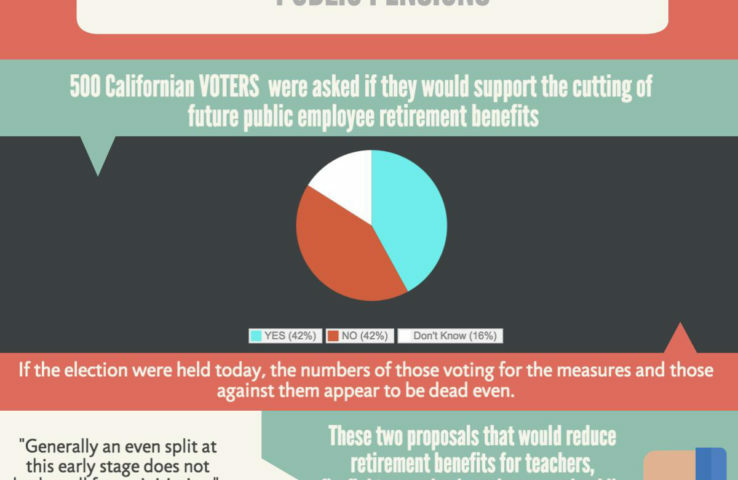
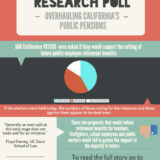
See Dan Braun and Bill Raden’s report on the Capital & Main poll.
Read other Capital & Main stories on pension-cutting ballot proposals in California.
» Read more about: Infographic: Public Pension Ballot Proposals' Tepid Support »
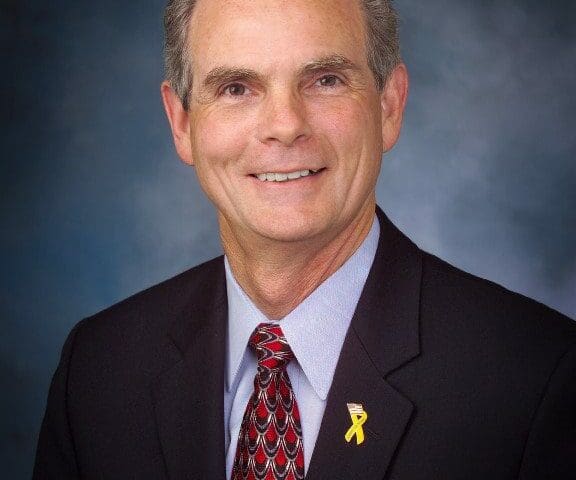
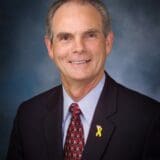
Chuck Reed today declined to address the findings of a Capital & Main poll that showed weak support for two Reed-created ballot initiatives aimed at reducing pension benefits for California’s public employees. If either measure receives the necessary number of petition signatures to be placed on the 2016 ballot, it will face fierce opposition from organized labor.
The poll, conducted by David Binder Research, was released yesterday and showed that if an election were held today, the two measures would win between 40 and 42 percent of the vote. The survey sampled 500 likely voters and has an error margin of plus or minus 4.4 percent.
“I never make statements based on other people’s polling,” Reed told Capital & Main. “Especially in a political environment. We’ll make our decisions based on our own polling.”
Drafted by Reed, a former Democratic San Jose Mayor, and former Republican San Diego City Councilman Carl DeMaio,
» Read more about: Chuck Reed: No Comment on Weak Ballot Polling Numbers »
Ron Miller, the head of the Los Angeles Building Trades Council, says that it is a “ritual” for trades workers to drive around Los Angeles surveying the jobs they have worked on.
Virtually every person I’ve talked to who is currently building the Wilshire Grand Center tower in downtown Los Angeles plans to bring their friends and family members to the building once it is finished. Electrician Anthony Sotelo wants to book his mother into the Wilshire Grand’s hotel for at least one night so he can switch on the lights that he wired to make sure they turn on.
“You take pride in your work by showing your family what you have built,” he says.
One of the delights of completion is the possibility of taking material and psychological pleasure in what you have created, the ability to tell a full story that reveals the daily successes as well as the discords of a difficult project.
» Read more about: L.A. Construction Site: The Satisfactions of Completion »
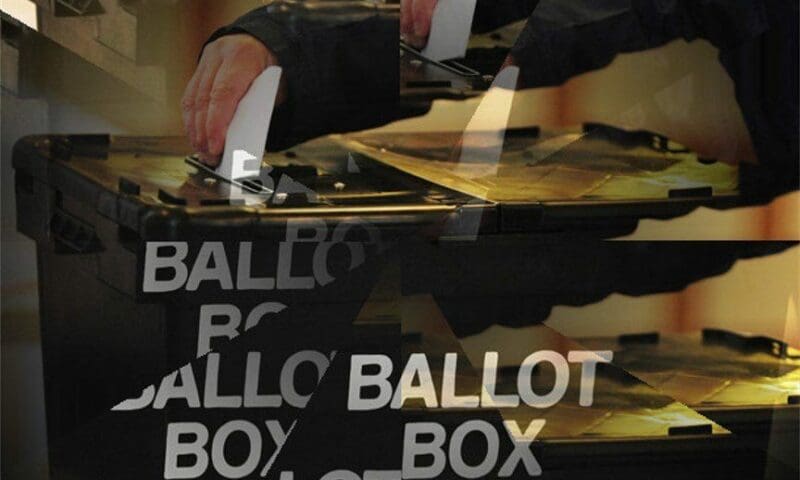

A pair of potential ballot initiatives written to overhaul California’s public pensions could face a rough road, according to a new poll.
The results from a Capital & Main-David Binder Research poll of 500 likely voters shows that if the election were held today, the numbers of those voting for the measures and those against them appear to be dead even. Those numbers are not what pension-reduction advocates had hoped for going into the 2016 election cycle.
Drafted by former Democratic San Jose Mayor Chuck Reed and former Republican San Diego City Councilman Carl DeMaio, the so-called Voter Empowerment Initiative, and its sibling, the Government Pension Cap Act, received their official summary language (though not their official titles) from the state attorney general last week. Low numbers and lack of support among DeMaio’s fellow Republicans had already forced the pair to abandon a previous effort,
» Read more about: Breaking News: Poll Shows Pension Ballot Measures Already in Trouble »


“There is more fear right now in the local Muslim community than after 9/11 because of the proximity of the recent violent attack in San Bernardino and the xenophobia present in U.S. political culture,” Shakeel Syed told an interfaith gathering attended by about 100 people last Sunday. Syed is executive director of the Islamic Shura Council of Southern California. He added that law-abiding, peaceful Muslims living in the Los Angeles-area are feeling paranoid.
To provide comfort and information for the local Muslim community, the Shura Council and the King Fahad Mosque of Culver City organized the event. Most of the crowd were first generation Muslim immigrants from South Asia, the Far East, West and North Africa, and the Middle East, and overwhelmingly male. The others present represented local Christian congregations, human rights activists and neighbors, all wanting to express solidarity with the Muslim community.
Shura Council Director: “Shame on us if we expect our rights to come to us on a platter.” » Read more about: Tolerance and Solidarity at Culver City Mosque Gathering »


 Seven years ago local officials in Marin County, California organized to form a nonprofit electricity company with the noblest intentions. Buying and selling electricity allowed the group, Marin Clean Energy (MCE), to route around the local utility giant, Pacific Gas & Electric, which for years had resisted its customers’ pleas for cleaner, more reliable power, all the while “greenwashing” its image with marketing campaigns. “People wanted more of a sense of how their dollars were being invested,” Alex DiGiorgio, MCE’s community development manager, tells Capital & Main. “They wanted more access to competitively priced renewable energy.”
Seven years ago local officials in Marin County, California organized to form a nonprofit electricity company with the noblest intentions. Buying and selling electricity allowed the group, Marin Clean Energy (MCE), to route around the local utility giant, Pacific Gas & Electric, which for years had resisted its customers’ pleas for cleaner, more reliable power, all the while “greenwashing” its image with marketing campaigns. “People wanted more of a sense of how their dollars were being invested,” Alex DiGiorgio, MCE’s community development manager, tells Capital & Main. “They wanted more access to competitively priced renewable energy.”
They also wanted to “catalyze local project development,” DiGiorgio says, to see their electricity bills go toward something more beneficial for the local community than large hydroelectric dams, polluting gas-fired power plants and a nuclear facility built over an earthquake fault.
But critics of the local-power movement say agencies like MCE — whose very reason for being was to stimulate renewable energy development — mostly support already extant renewable facilities.
» Read more about: Power Struggle: Will Local-Energy Groups Come Clean? »


There’s a chance that lawmakers in your city or state have recently floated something called “Pay for Success” as an innovative way to fund public services. Also known as Social Impact Bonds, Pay for Success programs bring the high-risk attitude of venture capital to critical, yet underfunded public services.
This week we, along with our allies, released A Guide for Evaluating Pay for Success Programs and Social Impact Bonds to help advocates better understand these new alternatives to public financing. Now communities can ask tough questions about a Pay for Success programs’ impact on vulnerable individuals and the public.
Though Wall Street investors like Goldman Sachs and Bank of America consider Pay for Success a “win-win,” some of these new programs look better on paper than they do in reality. The first program tried in the U.S. failed to reduce the rate by which adolescents housed on Rikers Island returned to jail.


As Governor Jerry Brown touted California’s environmental initiatives and prodded world leaders in Paris to embrace tougher environmental policies during the United Nations summit on climate change, it was instructive to look back at how one of Brown’s top environmental priorities suffered a major defeat in the California Legislature this year.
That priority was to establish a 50 percent reduction in petroleum usage in cars and trucks by 2030. Brown’s failure to win its passage in an overwhelmingly Democratic Legislature clearly illustrates not only the influence of the fossil fuel lobby, but also the continued rise of a new breed of Democrats who are exceedingly attentive to big business, while tone-deaf toward their party’s traditional progressive base.
Petroleum reduction was a key part of a proposed law, introduced as Senate Bill 350, which also called for steps to increase energy efficiency in existing buildings and require that 50 percent of California’s energy come from renewable sources,
» Read more about: How Big Oil Spiked Jerry Brown's Climate Change Agenda »
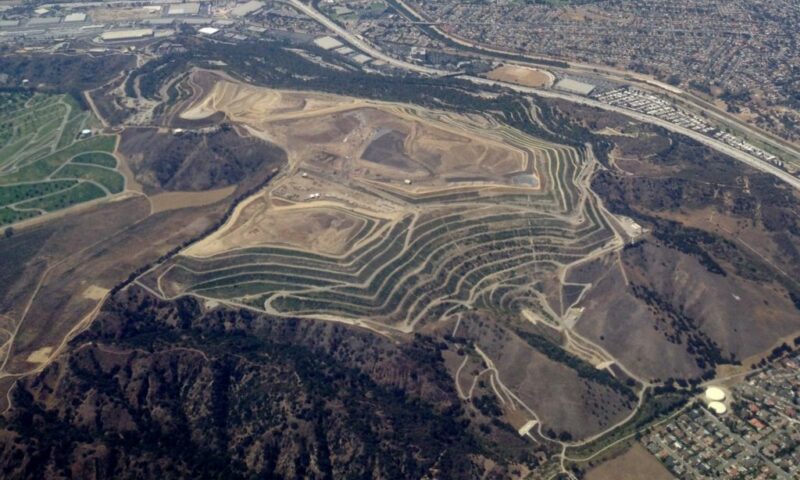

You have to hand it to libertarian writer John Tierney. He doesn’t give up easily. His long-winded 1996 article, “Recycling Is Garbage,” allegedly smashed the New York Times Magazine‘s hate-mail record. It covered the same ground as his recent New York Times op-ed, “The Reign of Recycling,” stating: “Recycling may be the most wasteful activity in modern America: a waste of time and money, a waste of human and natural resources.”
Is recycling really “the most wasteful activity in modern America?” That’s quite a charge. (What about all that Kardashian coverage?) But it may be true that it would be cheaper to put all our waste in a hole someplace and forget about it. Assuming, as Tierney does, that there are enough conveniently located holes. It would be even cheaper to use the medieval method of tossing it in the street.
» Read more about: NY Times Writer Recycles Old Ideas About Waste and Landfills »
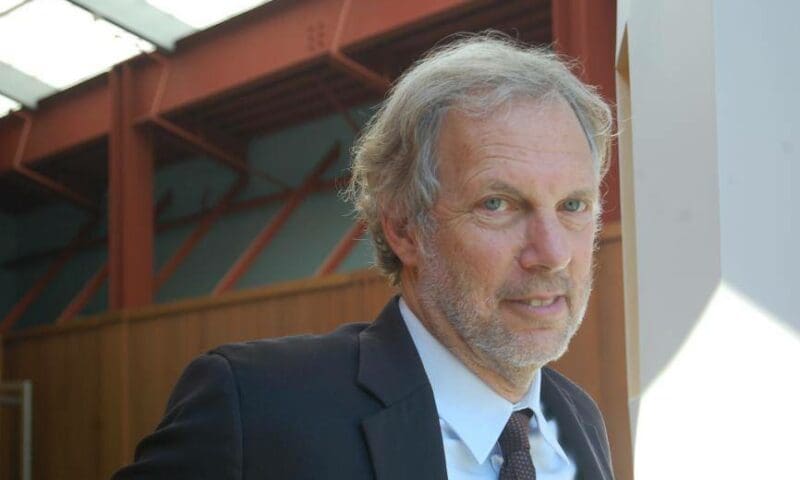
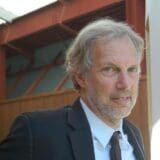
The debate may be over in the scientific community about the threat of man-made climate change. But as world leaders continue negotiating in Paris this week at an international climate conference, many questions remain about what it will take to come up with a workable plan to limit greenhouse gas emissions enough to avoid catastrophic warming.
University of Massachusetts at Amherst economist Robert Pollin injects a note of optimism into the discussion with his recently published book, Greening the Global Economy (MIT Press). Pollin estimates that we need to invest about 1.5 percent of global GDP annually in clean energy and energy efficiency in order to slow warming enough to maintain a livable planet. The good news, he argues, is that we can decarbonize our economy without sacrificing economic growth and prosperity. Capital & Main interviewed Pollin while he was in New York on a book tour.
» Read more about: Robert Pollin Sees a Bit of Rainbow During Paris Climate Talks »